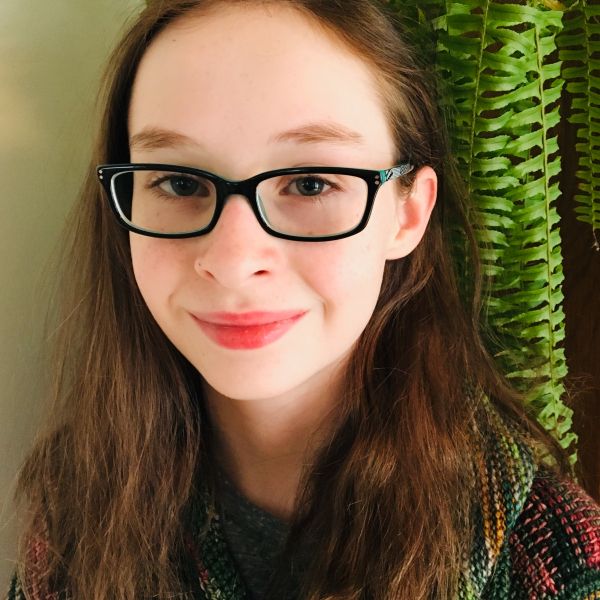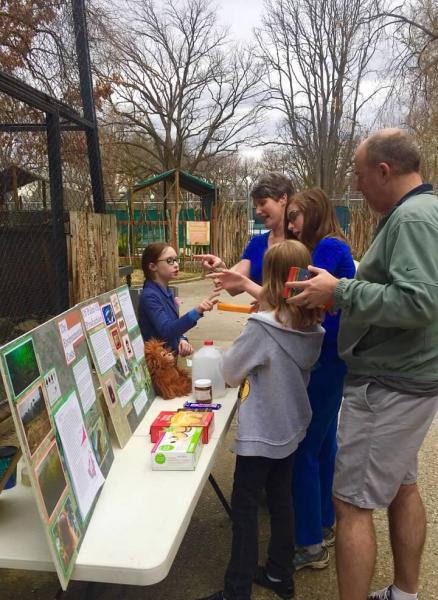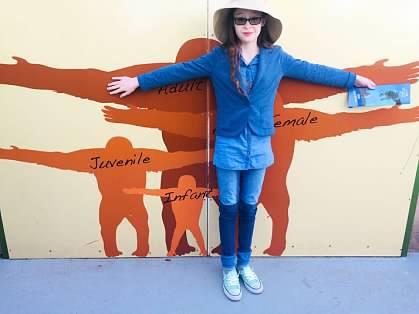Image

Boise, ID, United States SEE OTHER BIOS HERE
Age: 14
Pangaea's non-profit, the Orangutan Gang, helps raise support for species like the critically endangered orangutan by educating the public about saving the rainforest through sustainable consumer choices.
Tell us about yourself!
I’ve been involved in conservation since the age of six, when I began raising awareness for the critically endangered orangutan and their imperiled rainforest home through my conservation project, the Orangutan Gang. When palm oil suppliers burn down valuable rainforest habitat, thousands of species lose their homes and significant amounts of carbon dioxide are released into the atmosphere. The Orangutan Gang focuses on raising awareness for orangutans and the rainforest, and discouraging palm oil use in large companies and zoos through hosting public events, contacting institutions, and sharing information online. Along with two advisors and a small network of members, I have also developed a lesson plan for middle school students about palm oil and its impacts, available on eePRO.
In addition to my conservation work, I’m also an early college student, starting Boise State University classes full-time in fall 2019 and aiming for a double major in physics and mathematics with a dual degree in piano performance. In my free time, I enjoy practicing the piano and viola, doing crafts, reading, and writing stories and poetry. I live in Boise, Idaho, with my parents, grandmother, chickens, and two cats.

At six years old, during my first year at the Davidson Young Scholar Summit, I met an activist sitting behind a merchandise table in the Exhibitor Hall. She explained that oil palm plantations were destroying orangutan habitat and that the elusive oil was present in everything from shampoo to snack food. She sold me a palm oil free lollipop while discussing with me the fight to preserve orangutan habitat, urging me to get involved and start spreading awareness on my own. That girl was Emma Freedman, founder of Jungleheroes, a nonprofit focused, like mine, on helping save orangutans and rainforest through raising awareness among consumers. In 2013, at the age of eight, I began developing my project through a presentation at my elementary school and began a blog, building a following through my parents’ friends and Facebook posts. Emma continues to be my inspiration throughout my conservation work, her passion and commitment motivating me to save the rainforest to this day.
Now a graduate of the Davidson Young Scholar Ambassador Program, I continue to be motivated by the injustice caused by the oil palm industry. With the help of conscious companies, strict certification, and an educated consumer population, the destruction of the rainforest can be halted before entire species, including the sentient orangutans, find themselves without a home.
What advice would you give the next generation of leaders looking to make change through EE?
Just because you’re young, doesn’t mean that you can’t help save the planet. I am in contact with a nine-year-old who writes a newsletter about stopping climate change, a thirteen-year-old working on fishing plastic out of the ocean, and an eleven-year-old working to develop an app to reduce users’ carbon footprints. You don’t have to grow up in order to do environmental work – you can start today. Present to your school or teach your class something new. Start a website and help raise awareness. You can get acknowledged by larger organizations and build a following to help you achieve your goal. Becoming a conservationist is not as difficult as it sounds – all it takes is a cause, motivation, and persistence. All you need to do is step up, take action, and work together to end environmental injustice.
What keeps you motivated or hopeful about the future?
Is one person influential enough to make a difference? This is a powerful question that impacts our everyday lives and how we think about our contributions to conservation. If you truly don’t have enough influence, why should you do anything to help conserve at all? If you truly do, what could possibly be influential enough to promote conservation?
You might be thinking that you don’t have the power to completely avoid palm oil or donate vast sums to activists, but your influence far exceeds that. You can’t control what other people do, but there are plenty of people who would care deeply about the palm oil issue if they only knew about it. Your power is that you can tell other people, companies, and consumers about how to save the rainforest and help our planet become a better place for future generations. What is influential enough to promote conservation? Being an educated consumer and raising awareness. And if there’s one person influential enough to make a significant difference, that person is you. You give me hope. You keep me motivated.

The best thing that we can do to help save our planet is to spread the word and teach others about important environmental concerns. Conservation issues are everyone’s problem, and when we raise awareness, we are helping to solve it. An informed populace will help solve these environmental issues faster than anything else we can do. Palm oil is everyone’s problem, and everyone needs to do their part in fixing it. If we all work together to end the crimes of palm oil, we can save the rainforest and its orangutans, tigers, rhinos, and elephants who are losing their lives for an industry that delivers climate change and human rights abuses to our dinner tables.